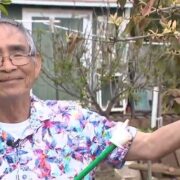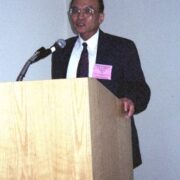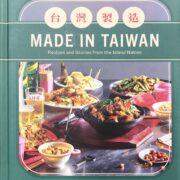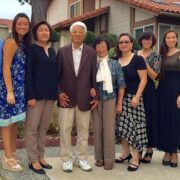Live to Win 贏在生活
by Tender Lin 林天德
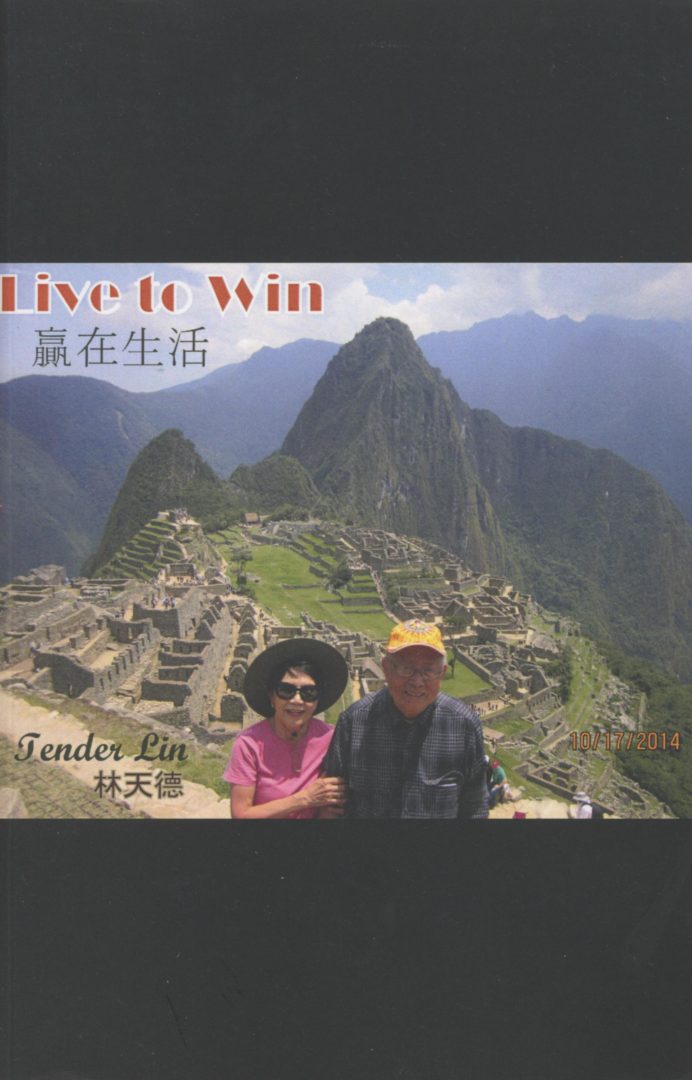
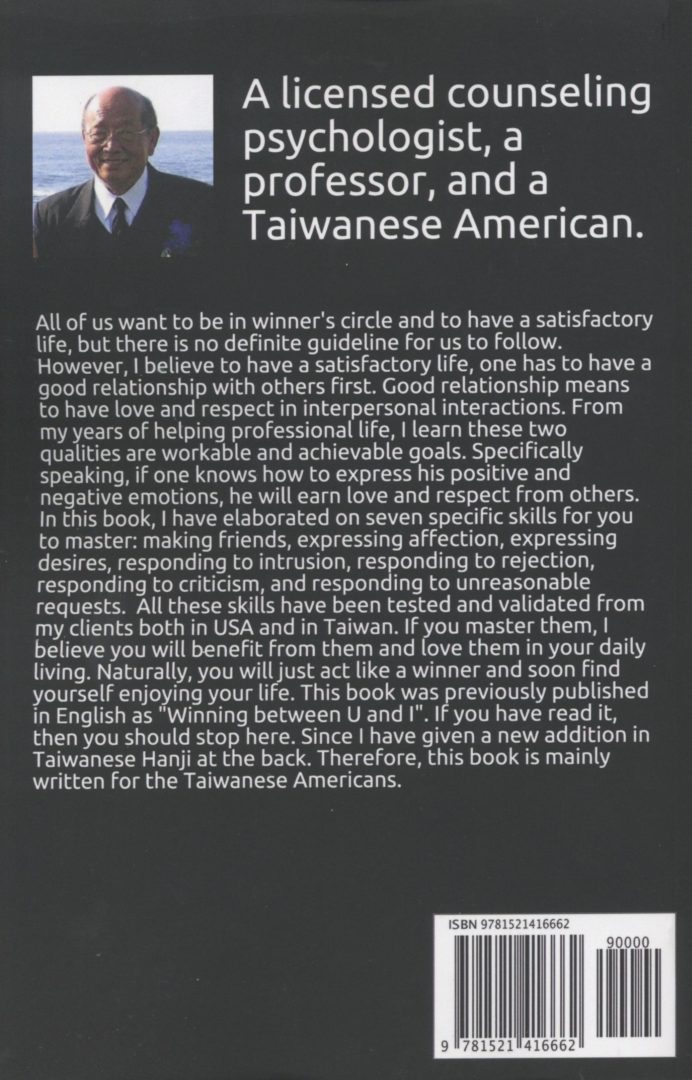
There have been many books written on personal growth and success in life. You might wonder what’s unique about this book. Well, I have lived both in Taiwan and in United States for all my life, and I have worked with all sorts of people, white or black, rich or poor, mentally healthy or mentally ill, easterners or westerners. I feel that I have a unique experience which in turn renders me having a unique insight about life. I have realized that human interactions are so much influenced by cultural upbringings, and I feel that I am in a unique position to tell how and what is the best way to integrate them in a meaningful way.
I was born to a Taiwanese farmer and reared in a big family. At the time, Taiwan was under Japan’s peaceful and orderly occupation. As I was ready to attend school, Taiwan was turned over to Chinese control. I started to learn a spoken language which is totally different from that of my elder siblings and parents, and thus made them ineligible to render any help in my schooling.
At off-school hours, I was a water buffalo boy and helped our family farm. All of these made me have a special feeling for water buffalo and a love for nature. In 2010, I returned to my hometown in Taiwan, I saw a water buffalo and I can’t help but to take a picture with him (See the picture).
You probably know, a large family in Taiwanese society is often admired. For example, a household of five generations is always got coverage by news media. A great grandparent is often pictured as a loving, caring, and joyful Buddha with great grand children in the family courtyard. In reality, the picture is not as rosy as it appears.
A big family does have its own problems. For example, one must shout across the dinner table or courtyard if he is to be heard. My first cultural shock in coming to United States was to hear the low tone of voice that Americans speak. I pondered and concluded that crowded family environment could be the culprit for loud Taiwanese speaking voices. Later, I found that Chinese people are no exceptions.
The other obvious disadvantage of big family living is having a large number of family disputes and quarrels. We have four generations and three uncles, and each has his own family. All of us lived in one compound and shared one courtyard. There were constant fights and disputes going on when I was growing up.
Even now I still remember I was once frightened by a particular fight between my father and my first uncle. I saw my mother stood at the bedroom doorstep to stop the fight. Up to this day, I resent any quarrel among the family members, and I wonder why people just couldn’t live peacefully with each other. This kind of upbringing contributed to my interest in human interactions.
In 1958, I entered Taiwan Normal University to study educational psychology. Back then, I thought that psychology was the right subject for me, because it literally means “logic of the mind” in Chinese. I thought if I mastered it, I should be able to understand human mind and become a mind reader.
I was not disappointed as the Department was fairly ambitious. In addition to offering courses in psychology, it offered courses in philosophy as well, both history in eastern and western philosophy and educational thought. It was an enlightening experience for me to study the differences between the east and the west on human nature. Chinese philosophers attacked the affective aspect of the issue with the question, “Is man born evil or good?” while western philosophers attacked the cognitive aspect by asking, “Is man born free or determined?” Up to today, I find both are vital to the understanding of human relationship.
As I delved deeper into study, I became preoccupied with religious issues. I felt it was the religion that held men together, especially during times of calamity. For example, Moses would not have been able to hold his people together at Mount Sinai desert without religion.
When I grew up, I enjoyed big feast and noisy parades of various religious festivals in Taiwan. I was always invited by my relatives and friends to celebrate their God’s birthdays. Up to today, although I do not belong to a specific religion, but I enjoy religious activities. I am not a real Buddhist, a real Taoist, or a real Christian, but I am not an atheist. We all need God to survive. There is no civilization if there is no God.
I believe in God, but the God I believe in could be different from yours. To me, God, the creator, is unknown to you and me. The God that we know and worship on at any religion is created by the people in that locality.
All Gods created by man are presumably powerful, wise, and omnipresent. However, due to tribal conflict, one tribe is doomed to downgrade the other tribe’s God as god or idol, and engaged in fight for their own God. Historically, religious wars occurred all over the place. What happened to Hagias Sophia in Istanbul, Turkey is the best example. It was a Christian church when it was built in 390, but Sultan Mehmet II turned it into Mosque in 1453. As I saw it in 2010, it was a museum (See the picture). I was really amazed to see Jesus, Mary, Allah, and Mohammed together inside that building.
In my senior year in college, I chaired a Buddhism Study Club and won the collegiate essay contest on Buddhism. Several of us received award on April 8, 1961 at Taipei Park during Buddha’s birthday celebration (See the picture). However, due to lack of time and difficulty with classical Chinese writings on Buddhism, I was not able to go for further study. I did not regret at the time, for I was somewhat afraid of the message that Buddhism conveys. I felt that I was on the verge of going outward and onward, but Buddhism seemed to want me to do the opposite. I did not want to lose the vitality of my youth, so I put aside my study in Buddhism.
I then took a new route. I became interested in Christianity. At that time, Christian missionaries were very active. Whenever there was a Christian Festival in downtown Taipei, I was often asked to attend or even was dragged along. I also joined Bible classes and was fascinated to read Genesis and Exodus.
I found it was hard for me to accept the Bible stories. For example, I just could not imagine that a man could live up to a thousand years, or that the Red Sea would open up for Moses to escape. I was even astonished at a hymn named “Onward Christian Soldiers” and wondered how a religion would advocate war instead of peace. I started to see a wide difference between Buddhism and Christianity and became interested in how religions shaped the East and the West.
On September 30, 1964, I came to United States. In two years, I obtained my MA in guidance from Northeast Missouri State Teachers College at Kirksville, Missouri. Upon graduation, I moved to Los Angeles. I worked on odd jobs one year, and then entered UCLA. In three years, I obtained my Ph.D. in counseling psychology.
Upon graduation, I was employed as an educational research specialist at Miami-Dade Junior College, a research director at Morris Village which is an addiction center at SC Department of Mental Health, and a clinical psychologist at SC State Hospital. In 1989, I returned to Taiwan to teach at various colleges and universities.
It has been a long way from a water buffalo boy to a psychologist. Indeed, my life seemed to be a constant struggle and a lonely battle. I often felt that I was the only soldier in the battlefield. At times, I wished that I was a son of a rich or powerful man, or that I had comrades on my side, but I did not have any.
The fact was that I came to USA, and became rootless man. Although USA is a land of opportunities, I found myself alone at every turn in my life, whether it was looking for a university to study, finding a mate, getting a job, buying a house, or fighting discrimination on job. I deeply felt how importance it is to have a supportive human environment in life.
However, all in all I get taste of being a winner in life. I remember that early in my profession, one of my client’s tattoos that said “born to lose”. That tattoo really turned me off. I wondered how a man could publicly proclaim himself with such conviction. I could understood for a man “born to raise hell’ or “born to be wild”, but certainly not “born to lose”. I do not believe that any one is a born loser. If he is a loser, it is because he behaved that way and not born that way.
Upon constant examining losing behaviors and the nature of supportive human environment, I found the key to a successful living. It is simply to have good relationship with others, in other words, to have good friends and lovers. I believe if all of us have plenty of supportive friends and lovers, then we can develop our potentials and make our contributions to society. To me, winner is just anyone who has happiness and peace in his life.
Naturally, this is a book of relationships, and is a product of my relationships with others. Credits should go to everyone I have come in contact with, my parents, my siblings, my relatives, my playmates, my classmates, my teachers, my students, my colleagues, and my neighbors. Each one of them has contributed at least “two-cent’ worth” to this book. Particularly, my clients at Morris Village have directly provided me the source materials and inspirations. I owe a great deal to Mrs. Sid Denton for first editing of this book. Of course, I owe my wife, Ikuko, for her emotional and financial support.
Tender Lin, Ph.D.
本人一九九○年在台灣遠流出版社出版「贏在你我之間」一書後,曾再版數次,也獲黎明出版社購買九千本。在台執教期間,親身感受到讀者對本書的喜愛。現今退休在美國舊金山灣區,每逢到處演講,聽眾問及此書時,我只能傷心地告訴他們,這本書已被出版社絕版了。
回想一下,這是我在執教和演講上最重要的一本參考書。再加以在出書數十年後,在師生互動上、在課後研究上、在生活體驗和研究上,我都對書上的主題累積了不少的資訊,確實有必要加以擴充。
如是我把書從頭到尾再看一遍,給以佐料,加肉和加菜。原本用以說明人際關係目標的「平分線」被改為「對等線 (Symmetric Line)」,把用以說明人際歷程的「定點線」改為「定線」,再把「對等線」加入其他4S,如是提升為5S,台灣語叫做「五爽」。最後把「五爽」的第一字排列為「實直對定單」,聽起來有點像「市值對訂單」,就比較口語化。雖然這只是一個字的更改,但親切又便於記憶得多了。更重要的是我增加了「學生回響」、「人關訓練功效」、「人關訓練時間效應」等三章。此外,為了使讀者更能掌握人關技能的運用,在每技能之後,我也附上學生的家庭作業範例。
趁英文版出書之便,我就把它附加在後,重新命書名為「贏在生活」,真是一舉兩得。因我捨不得此書被絕版。我自戀也自傲,相信你也會跟我一樣地喜愛它的新面貌和新材料。
林天德,二○一四年九月二十九日
於美國舊金山東灣小山丘上
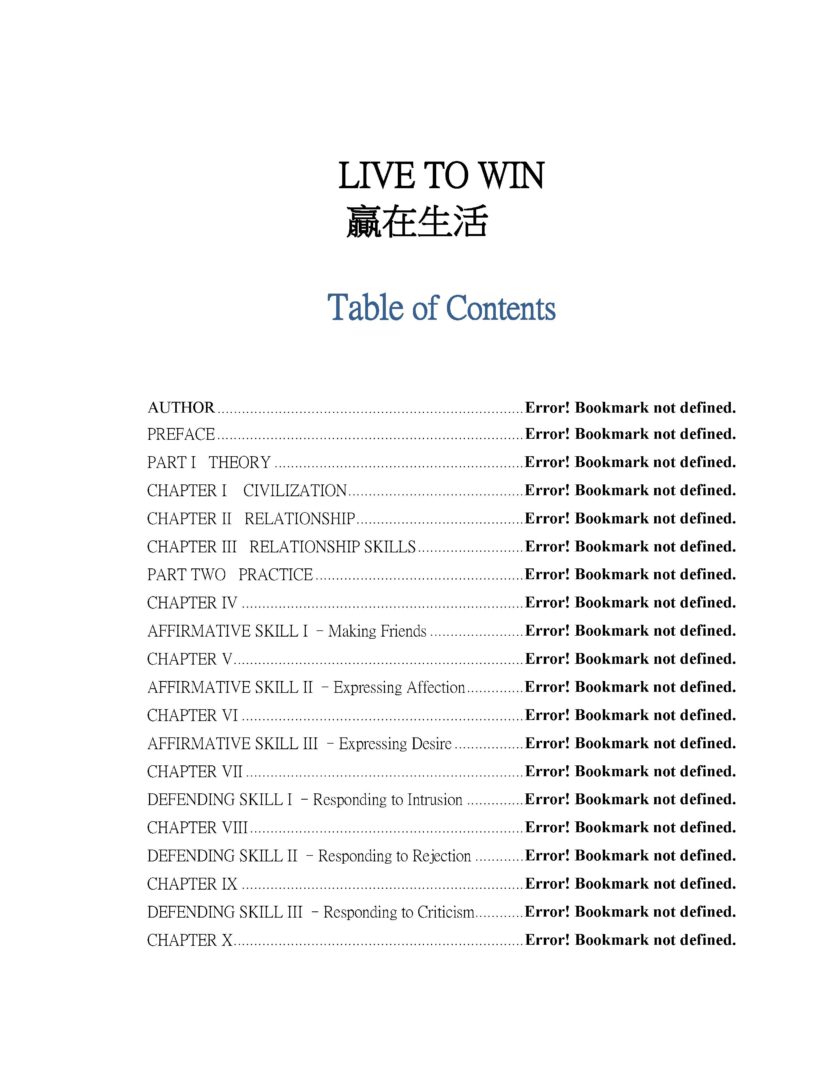
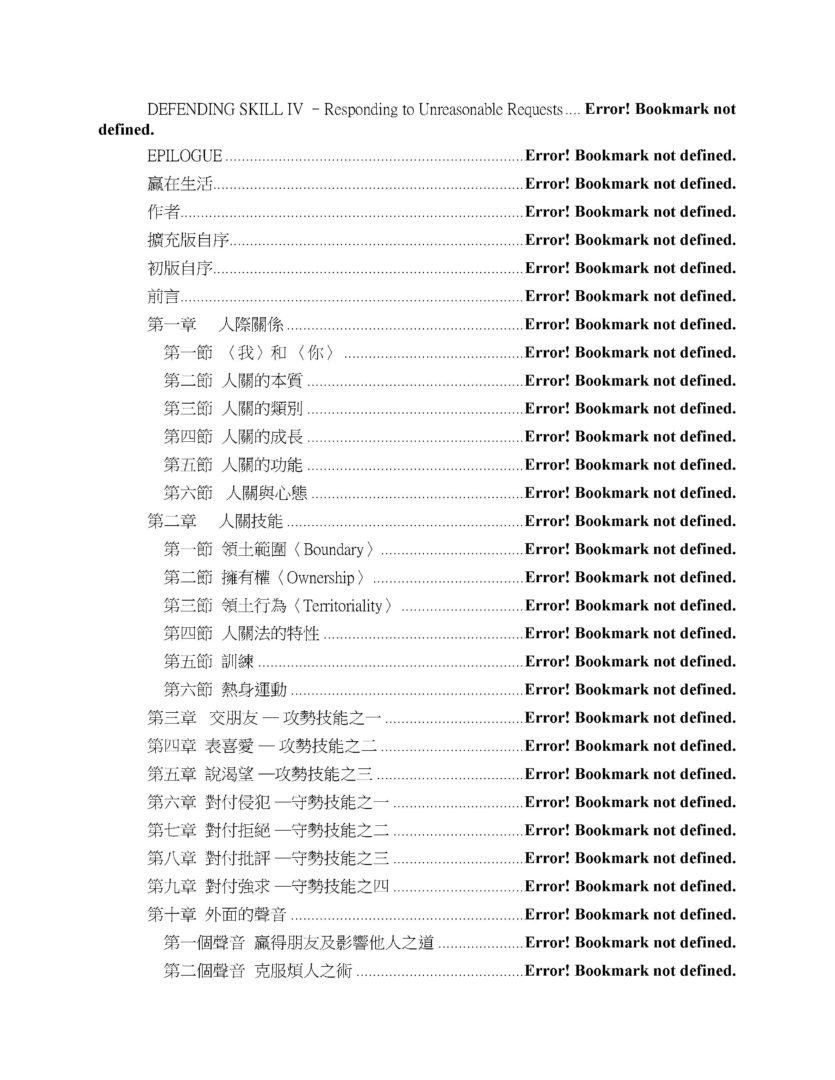
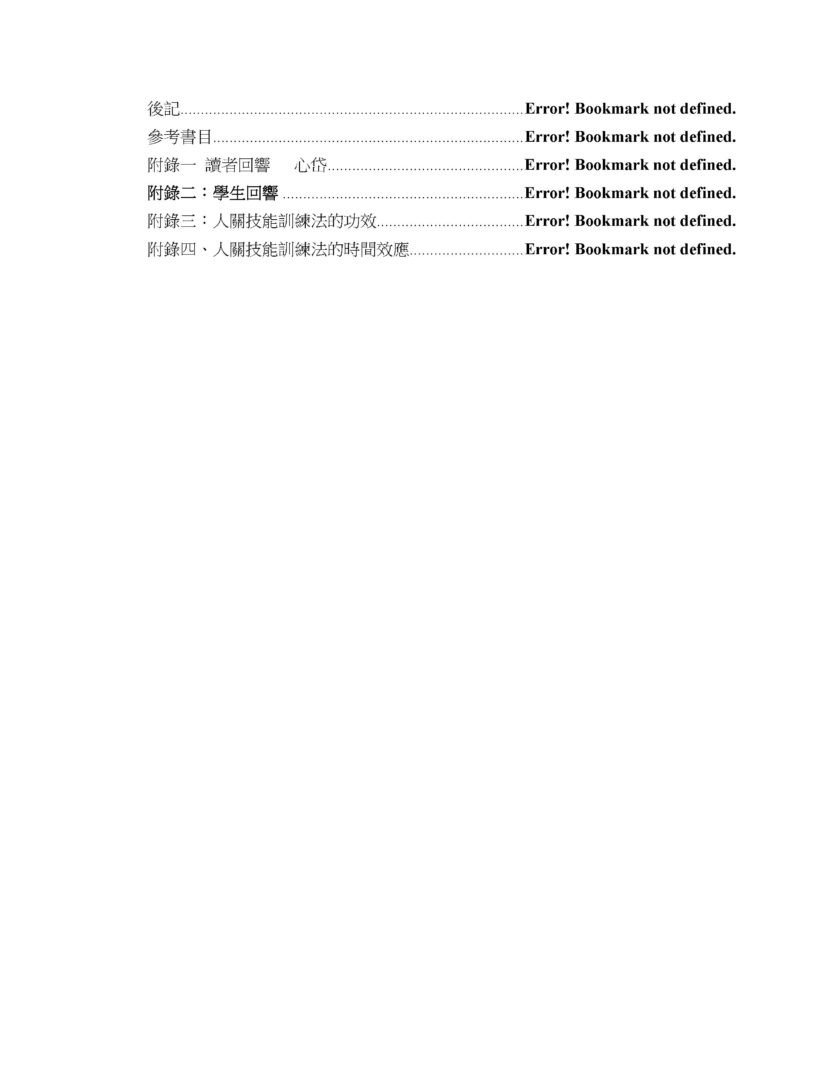
Published in 07/2017
Posted in 07/2017

